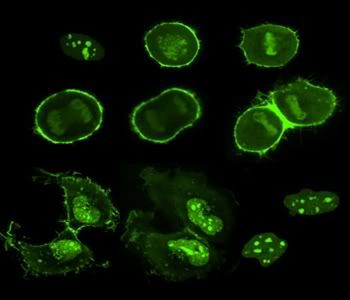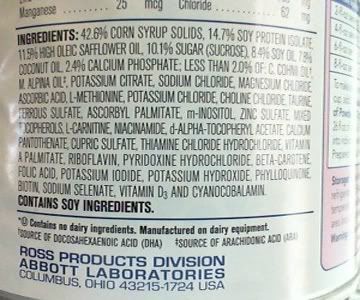A couple nights ago, I added a bit more information on oxidation and glycation in my previous post, which I neglected to explore in detail. Take another look at it. It is highlighted in light green just in case you missed it. (Thank you Mom!)
Today, we will be talking about sugars unique ability to promote cancer cell growth. In a recent study conducted by a team at UCLA, researchers found that although cancer cells will consume glucose to survive, fructose caused them to proliferate(multiply) at a much greater rate.
Dr. Anthony Heaney at UCLA's Jonsson Comprehensive Cancer Center and team wrote "Fructose activates a key cellular pathway that drives cell division, promoting the growth of cancer cells"
Cancer cell proliferation.
This is pretty scary, considering sugar and high fructose corn syrup is consumed massively on a daily basis. By default, this is what our body deals with; fructose aside.
On a daily basis, our bodies are dealing with minor stress from oxygen; but we are evolved to handle that, it's part of life. It's our natural wear and tear as animals. Our body fights off oxidative damage alone just by breathing. Fortunately, we have evolved mechanisms of homeostasis. Homeostasis is our bodies natural self regulation. Our bodies want to maintain equilibrium, and if left alone, it will more or less take care of itself. The body is an amazing thing in this way. If you don't disrupt the system and the balance, your body's natural tendency for homeostasis will keep things going smoothly. You have to really overwhelm the system in order to upset the balance and send your metabolism running off the rails. We evolved these mechanisms, but our body didn't foresee foods such a vegetable oils, wheat, high fructose corn syrup and excess amounts of sugar. They are disrupting our natural balance, and are too recent in our diet for us to evolve handling them.
Your body is also creating millions of cells everyday to replace the ones that are dying. There are bound to be errors with thousands of these cells; mistakes will be made. Cancer cells are formed everyday, but in a healthy body they are eliminated.
However, when there is too much fructose in your system, some of those cancer cells might be stimulated enough to survive and reproduce, potentially leading to life-threatening cancer.
Everyone's body is already dealing with the day to day damage, and that doesn't factor in genetics. Some bodies are more prone to defects then others. What did your mom eat before she conceived you, and what did she eat during her pregnancy? These things matter, and play a huge role in the way each and every one of us turned out. I can imagine the amount of damage mothers do to their kids during the 9 months. It makes me wonder about stillbirth. Studies have found the amount of oxidative stress in the mothers body both during pregnancy and during breast feeding, can contribute to chromosomal damage and defects in the child. This needs to be studied more, but you can't deny that there could be a connection. Stillbirth causes: birth defects, chromosomal abnormalities, poor fetal growth, placental problems, diabetes, and high blood pressure in the mother, can all be explained by the modern diet.
DNA is like your body's blueprint, that tells your cells how to form and what to do; when your DNA chromosomes are damaged, cells aren't going to form properly and aren't going to work right. What do we know that causes DNA damage? Oxidation and glycation. If you've been reading this blog, you know that vegetable oils and sugar are the major dietary causes of oxidative stress and glycation.
It is very depressing to think about the amount of damage that a baby can suffer during its formative stages as a direct result of the mother's diet. It is possible that many defects that are blamed on genetics could be avoided by a better, less oxidative diet.
Your child's health is influenced by choices that you make starting even before pregnancy and continuing during the entire term, and during breast-feeding. Don't wait until the child is born to start thinking about his health. Please for his/her sake eat right, and also breast feed your child. Don't listen to anyone who tells you that its not the healthiest food for your baby, or that it doesn't matter if you use formula, because IT DOES. Some studies have found that the majority who die from SIDS (Sudden Infant Death Syndrome) were formula fed, and babies that were breast fed were less likely to die from SIDS. Breast milk is specially formulated by evolution to be the perfect food for your baby. Breast milk is a source of loric acid, a saturated fat which in the body metabolizes into monolaurin which is a natural antibiotic/ anti-viral, which is great for your immune system. If you don't breast feed, your baby is missing out on the protective benefit of monolaurin, and every other benefit from breast milk.
Have you ever checked out the ingredients for Similac baby formula?
42.6% Corn Syrup Solids, Soy protein, Safflower oil, Sugar (sucrose), and Soy oil as their top ingredients.
This is very sad. Where's the nutrition? How can anyone feed their child that sad excuse for nourishment? All that corn syrup, sugar, and vegetable oils, really? Dr. Robert H. Lustig, Professor of Pediatrics in the Division of Endocrinology, came out with the video “Sugar the Bitter Truth” link here --(youtube.com) . He talks about the obesity epidemic with fructose and the damaging effects baby formula is having on infants. As Dr. Lustig puts it, Similac is a 'Baby Milkshake.'
In my next post, I will get to the other topics I promised to write about in my previous post. This post was much longer than anticipated. Take care.


